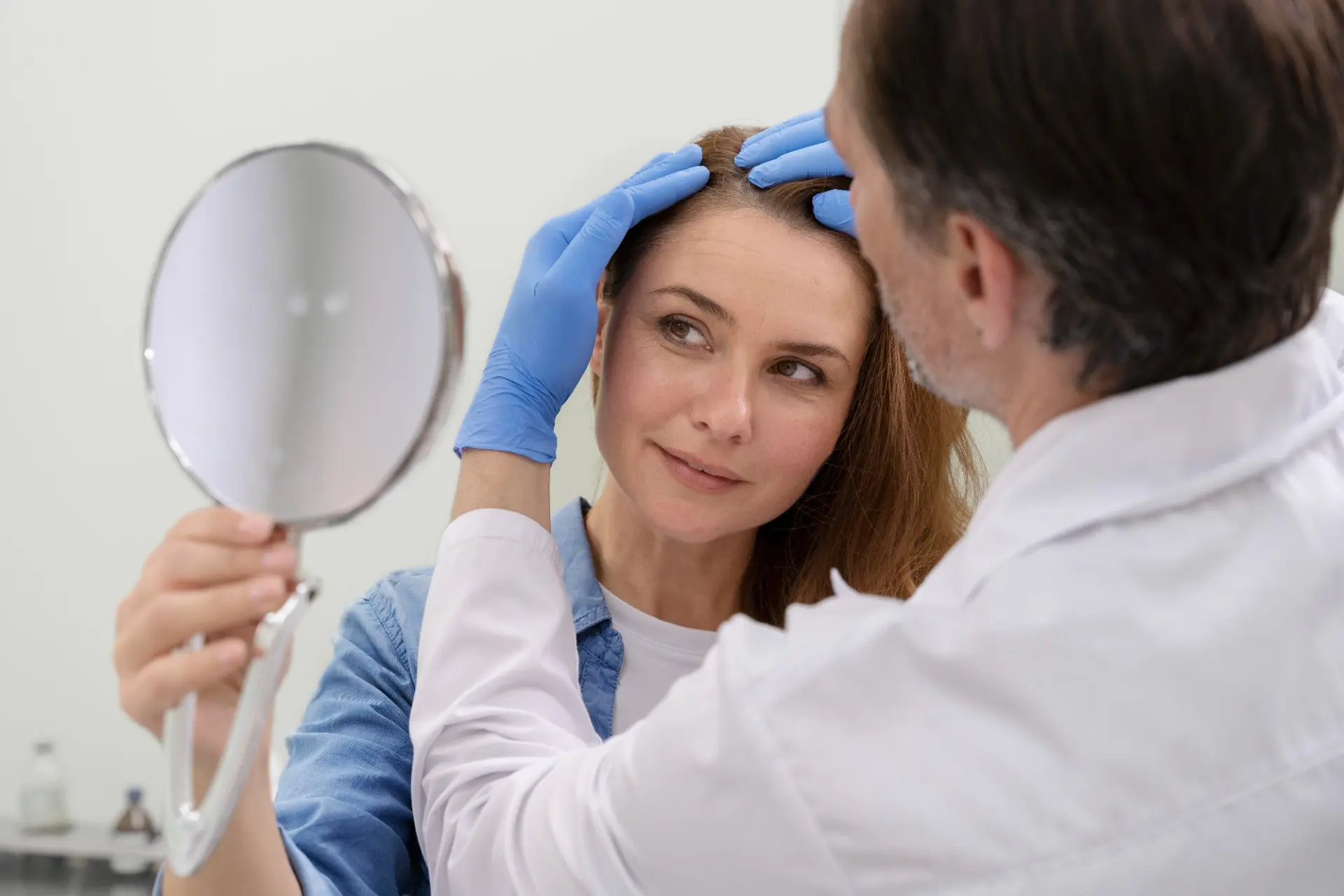Understanding Hair Loss
Before diving into treatments, it’s essential to understand the causes of hair loss. Common reasons include:
- Genetic Factors: Hereditary hair loss, known as androgenetic alopecia, is the most prevalent cause, affecting both men and women.
- Hormonal Changes: Conditions like pregnancy, menopause, or thyroid disorders can lead to temporary or permanent hair thinning.
- Medical Conditions: Autoimmune diseases, scalp infections, and certain medications can contribute to hair loss.
- Lifestyle Factors: Stress, poor diet, and inadequate hair care can exacerbate hair thinning.
Effective Hair Loss Treatments
- Minoxidil (Rogaine):Use: A topical solution or foam applied directly to the scalp.Effectiveness: Promotes hair growth and slows down hair loss. Suitable for both men and women, it is most effective for those with recent hair loss.
- Finasteride (Propecia):Use: An oral prescription medication for men.Effectiveness: Reduces hair loss by inhibiting the hormone responsible for hair thinning. Results may take several months to become noticeable.
- Hair Transplant Surgery:Use: A surgical procedure that moves hair follicles from a donor site to balding areas.Effectiveness: Offers permanent results, providing a natural-looking hairline. Ideal for individuals with significant hair loss.
- Laser Therapy:Use: Low-level laser therapy (LLLT) devices stimulate hair follicles.Effectiveness: Promotes hair growth and can be used by both men and women. Treatment is painless and non-invasive.
- Platelet-Rich Plasma (PRP) Therapy:Use: Involves drawing a small amount of blood, processing it to concentrate the platelets, and injecting it into the scalp.Effectiveness: Stimulates hair growth by utilizing the body’s healing properties. Suitable for both genders, with minimal downtime.
- Nutritional Supplements:Use: Vitamins and minerals such as biotin, vitamin D, and iron support hair health.Effectiveness: While they may not reverse hair loss, they can improve overall hair quality and growth.
Lifestyle Changes for Hair Health
In addition to treatments, adopting healthy lifestyle habits can support hair growth:
- Balanced Diet: Consume a diet rich in vitamins, minerals, and proteins to nourish hair follicles.
- Stress Management: Engage in activities like yoga, meditation, or exercise to reduce stress, which can contribute to hair loss.
- Gentle Hair Care: Avoid harsh treatments and styles that can damage hair. Use mild shampoos and conditioners.
Conclusion
Finding the best hair loss treatment for you involves understanding the underlying causes and exploring various options available. From topical solutions to surgical procedures, numerous treatments can help you reclaim your confidence and promote healthy hair growth. Always consult a healthcare professional to determine the most suitable treatment for your specific needs.

